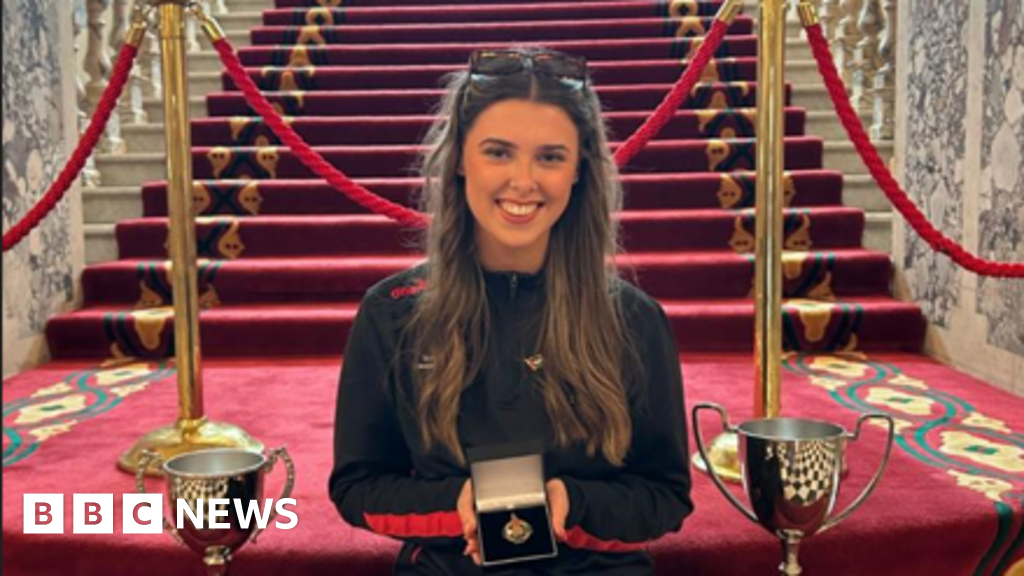By Bernie Allen, BBC News NI
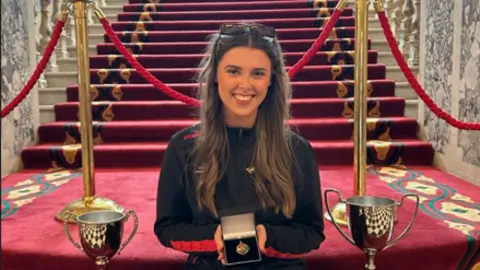 Bronagh Lennon
Bronagh Lennon “I would say winning an all-Ireland medal in Scór is definitely just as big as winning one for sport.”
All eyes are on Dublin this weekend for the 137th All-Ireland senior hurling final at Croke Park.
It’s a huge day for the game, the fans, and the association, but there is another side to the Gaelic Athletic Association (GAA).
Music and dance may not be the first things people associate with hurling and football, but Belfast singer Méabh McNeill is the first in 50 years to win an All-Ireland Scór medal for Antrim.
She is “not very sporty”, she says, but Scór has given her the chance to be part of a club.
What is Scór?
Scór – the cultural division of the GAA – was established in 1969 with the aim of creating an event that combines the competitiveness of sport with traditional Irish pastimes such as céilí dancing, solo singing and ballad groups.
The teams follow a competition structure similar to that of the All-Ireland Football and Hurling Championships – with the winners proceeding to the Provincial and then All-Ireland Final.
“I couldn’t really play Gaelic,” Méabh told BBC News NI.
“I wasn’t good at it, so I did feel a loss in that because I did still want to be a part of my club and part of a team.”
“I came across Scór – and I felt like yeah, I can kind of contribute to this – I can be involved, and I can represent my club and my county,” she said.
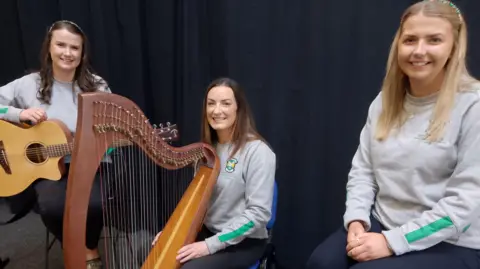
Méabh’s not the only Ulster champion this year.
Along with her bandmates, Rachel Mitchell from Glenullin, is an All-Ireland ballad group champion.
“You have an All-Ireland medal at the end of the day and not many people can say they have one of those,” she said.
“I think as a team we were absolutely thrilled that we had put in the work, and it had paid off; you just have to be determined and keep practising,” she added.
“It’s so important to keep these traditions alive and that teams meet up and encourage playing your sport or your music, dance, whatever part of the competition you want to partake in.”
‘There should be more spectators’
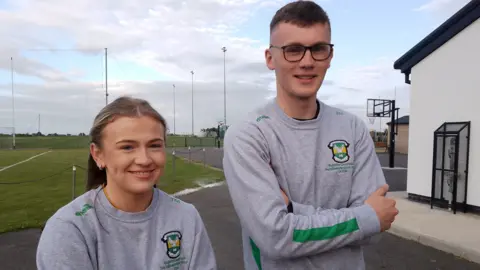
“I think more young people could get involved in Scór and reach out to those who aren’t as comfortable on the pitch or playing a sport that potentially there is something else out there for you.”
Aoife McIlvar has been involved in traditional dancing with Scór for the past ten years.
She also plays camogie and says both are equally as important to her.
“We don’t get many spectators at Scór, but I think there should be more because it’s enjoyable and there is something for everyone to do,” Aoife told BBC News NI.
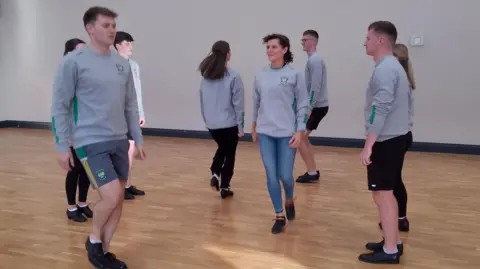
Paula Magee is the chair of the Ulster Scór Committee.
She says Scór has progressed since it was established.
“It was originally brought in as a winter activity and it was aimed at providing a pastime to keep our culture, our music, and song, and dance alive,” Paula told BBC News NI.
“It would have been much more casual back when it started, and it probably would not have been as professional,” she said.
“People have got a lot better at what they do.
“It’s a great way of club members expressing themselves and having a bit of fun along the way,” she added.
Some Scór singers also get the opportunity to sing Amhrán na bhFiann – the Irish national anthem – before the start of football matches.
Paula says in the past couple of years, organisers have introduced training camps to prepare the singers for performing in front of large crowds.
“It’s a very nice way of Scór singers being included in our match days and being able to be out there on the pitch with our field sports.”

